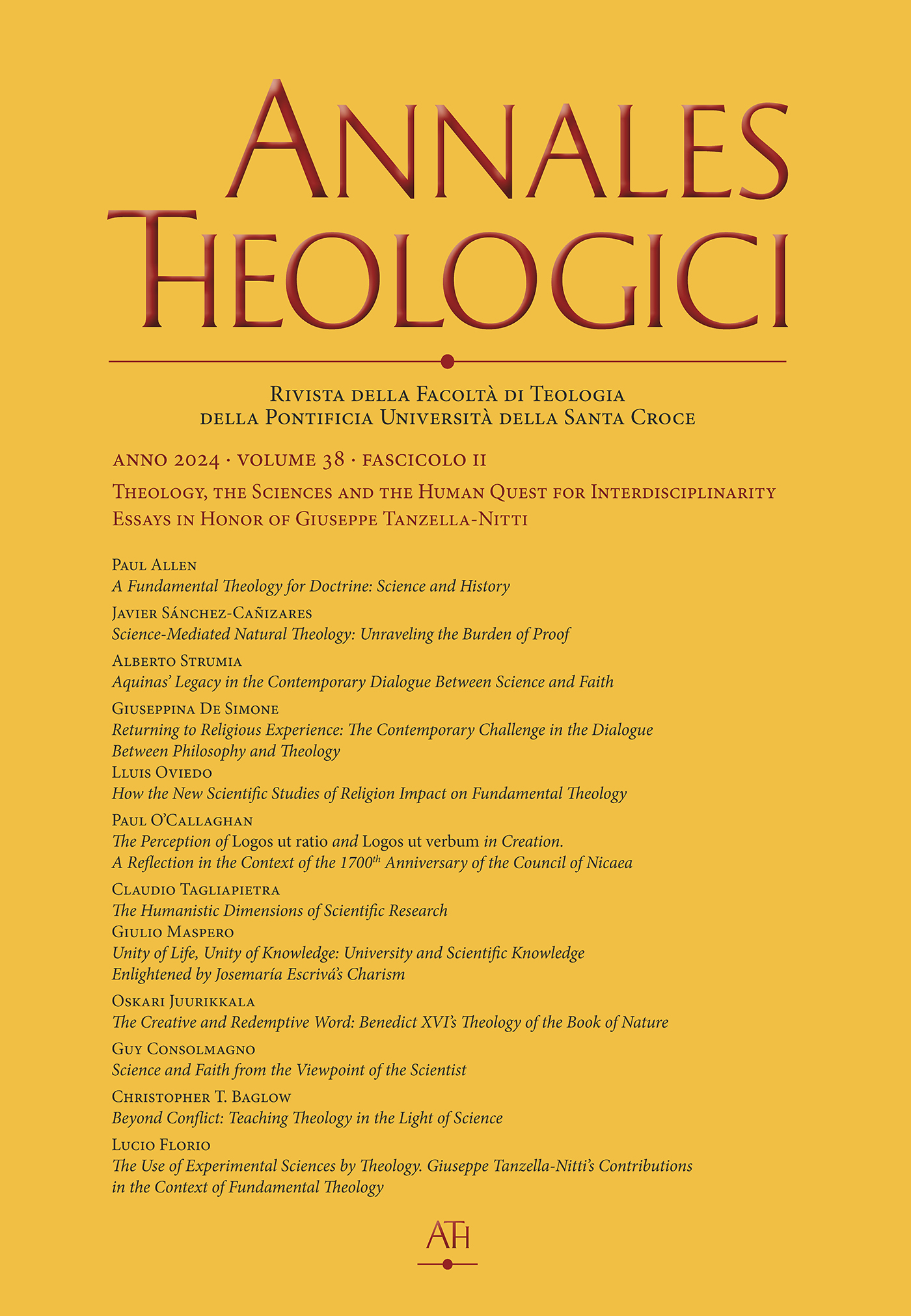The Perception of "Logos ut ratio" and "Logos ut verbum" in Creation
A Reflection in the Context of the 1700th Anniversary of the Council of Nicaea
DOI:
https://doi.org/10.17421/ATH382202406Keywords:
Logos, Science, Creation, Theology, Council of Nicaea, Giuseppe Tanzella-NittiAbstract
We examine the Biblical roots of the doctrine of divine creation through the Word, then the respective positions of Greek philosophers and Christian authors (in particular Plato, Philo of Alexandria, Plotinus and Arius), and finally the consolidation of the Church’s definitive position on the matter at the Council of Nicaea (with Athanasius, Augustine and Thomas Aquinas, among others). We argue that the fundamental structure of a divine Logos (logos ut verbum) and a created world with its own intelligibility (logos ut ratio) is already present in Greek philosophical thought. However the teaching of Nicaea is critical in our understanding of the relationship between the creating Logos and the created logos. We finally draw some conclusions on the nature of the relationship between logos ut ratio and logos ut verbum.








